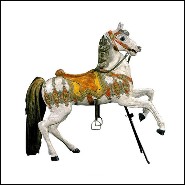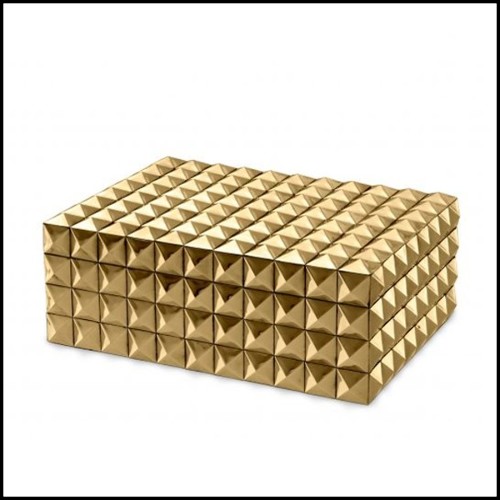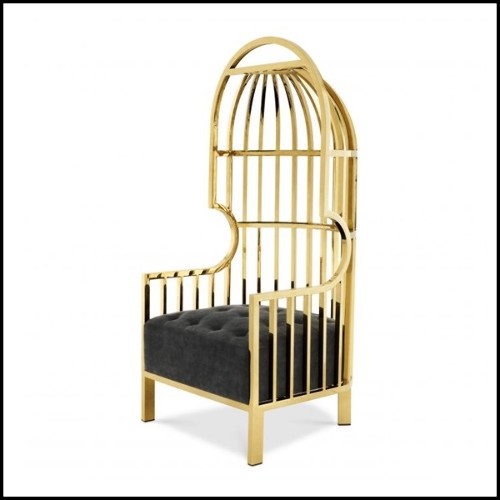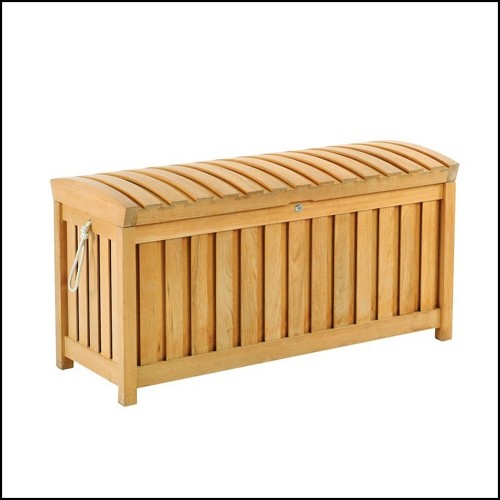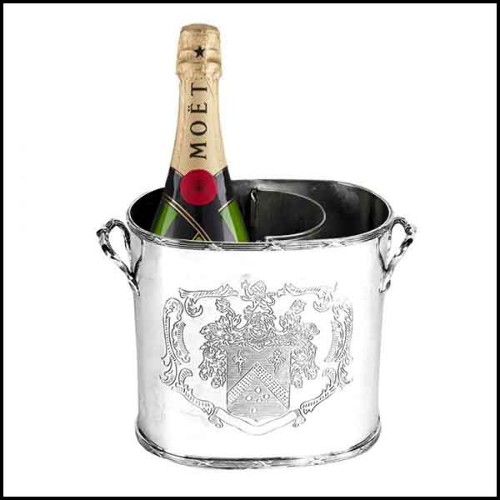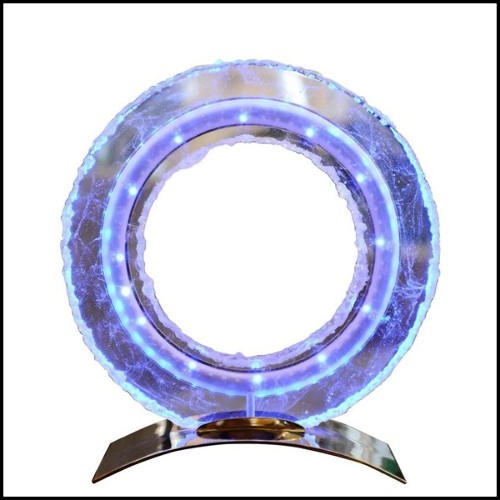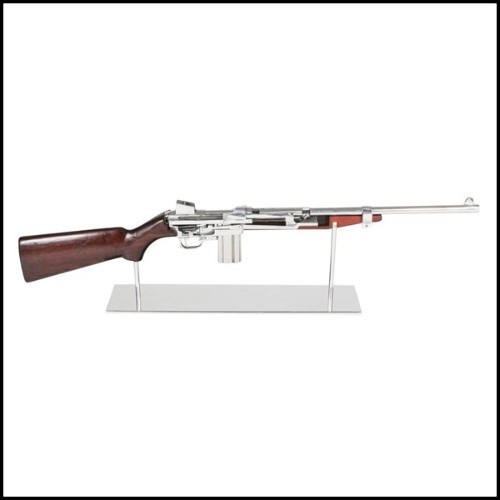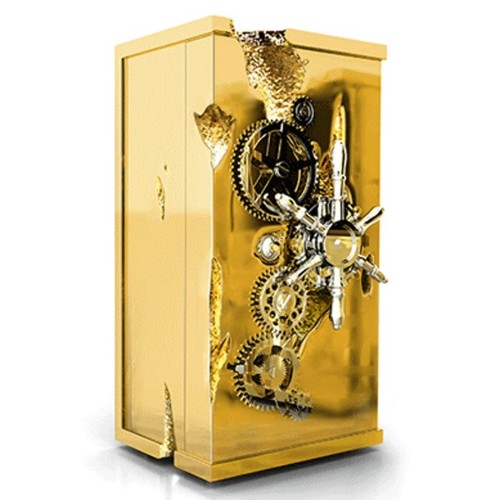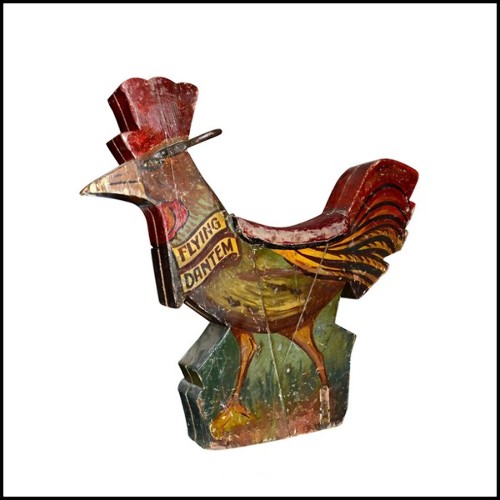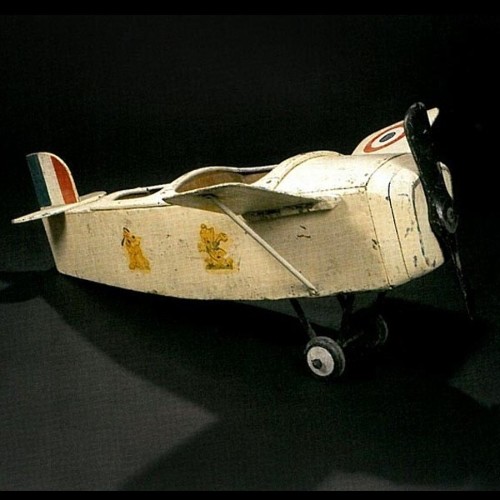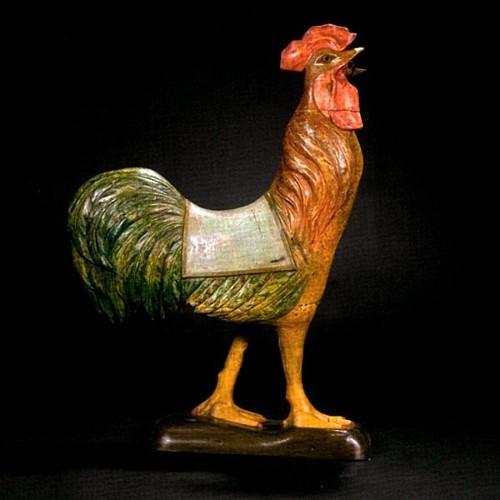Prancing Horse Alfred POEPPIG
Description
Pièce of Collection from the fairground art, Year : 1910, Carved wood paintedt, decoration brass
Dimensions: H 130 x W 130 x D 28cm
From Germany, Neustadt sur Orla
Réf: 313
Prancing Horse sculpted and painted wood -Alfred POEPPIG
In the middle of the 19th century the history of fairground art was well known, but the objects, carousels and scenery seemed to have escaped any study. Opulent merry-go-rounds inherited from La Belle Epoque made by some of the greatest fairground artists and sculptors held little interest after the war. They were dismantled, forgotten, deemed cumbersome and left to rot in dank sheds. Fabienne and François Marchal found their first wooden horse forty years ago while antiquing. They had no idea they were embarking on a never-ending quest. Their search for these forgotten fairground objets d'art has taken them on innumerable journeys to the heart of Europe and across France. They became explorers and passengers of dreams and wonder. These pieces were listed as "Masterpieces of Fairground Art" published by the Cornette de Saint Cyr auction house at an auction that took place in September 2011. This work pays homage to this couple, who have contributed to the recognition and protection of Fairground Art. A fine example of their efforts is this prancing HORSE by Alfred Poepping in carved painted wood with brass finishings and colourful gemstones. This FAIRGROUND HORSE from 1910, is a unique collection piece originating from the "Hubner and Poepping" workshop located in Neustadt an der Orla in Germany. Collectors restore the fields of art which fascinate them and save that which would otherwise be destroyed by sheer ignorance.
Customers who bought this product also bought:
Armchair Eichholtz - Bora Bora
